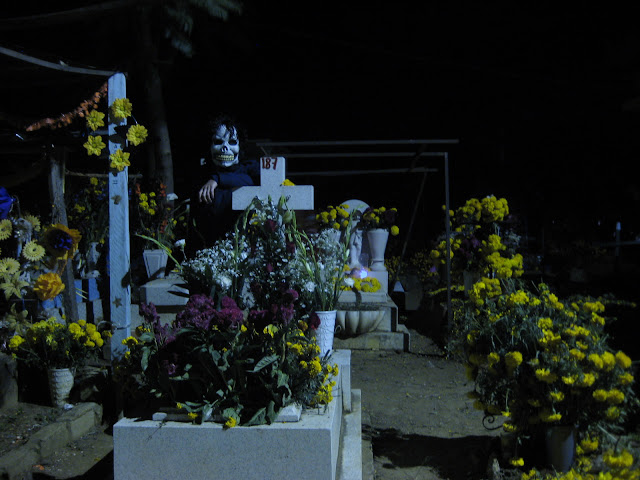Cariatid tombée portant sa piene, 1881-1882
Fallen Caryatid carrying her stone
Auguste Rodin

The fallen caryatid is serene and perfectly balanced, yet the conflicts inherent in her physical and psychological state create a study of vulnerability and a work of great tension. The young woman is seated on the ground with her legs half crossed. She is leaning her head to the right and resting it on her left hand, which is extended across her body. Her eyes are closed and her expression is placid. At the apex of the composition is her stone, rough and unfinished, supported by her right hand on the exposed left side of her neck and shoulder. Beneath the block her body is quite asymmetrical and is coiled into a complex, inclined, and delicate tangle, her drape fallen into her lap. Her equilibrium is only just maintained between her head, bent to the right extreme, and the fall of her left leg and her left-leaning back and hips. Overall she is reaching forward and down, in an unfurling foetal position.
The caryatid has fallen but we know not at first in what state she has found herself. She may be about to spring upwards with rediscovered strength, or she may crumple further under the weight of her burden. Above all, she looks vulnerable, certainly yearning for the safety and innocence of the womb. Her eyes are closed and her visage and her body are utterly still. The only sign of movement, or of any visible physical tension in her, is a curl upwards in the big toe of her left foot and the gentle grip of two fingers of her right hand in the locks of her hair.
The composition is run through with dynamic tensions. The pressure downwards of the stone battles against the potential upward thrust of her body. The block’s heaviness and substantiality draws attention to the intricacy of the caryatid’s posture and the space between her limbs. Its unsculpted texture and irregular shape upset the caryatid’s softly contoured musculature, her unusually undefined hair, her polished skin. Her humanised delicacy and the vulnerability of her position evoke a different world to that of the freshly quarried block whose roughness suggests the burden of her architectural, grandiose, duty. Her sleepy comportment, with her eyes closed and her head resting on her hand and shoulder, compromise her current task of supporting herself and a large block of stone. The taut vertical potential of the stone conflicts visually with the curved horizontal potential of her body, her elbows and knees dropping forward and to the side.
The tensions in the composition suggest that beneath her placid expression a tumultuous transformation is taking place. The index finger of her right hand is separated from the rest of the fingers and is holding back a lock of her hair, closely reminiscent of another sculpture whose enigmatic posture suggests the moment before or the commencement of an explosive and terrible act - the Moses of Michelangelo in San Pietro Vincoli in Rome*. The enigmatically serene and yet unsustainable position of the caryatid also suggests the onset of a new act, yet her act is not dramatic but intimate – it is the moment she will gain consciousness and be changed forever.
This caryatid has failed qua caryatid. She no longer holds her assigned entablature in place, she has given up her role amongst the male atlantes who support human creation and the world of men. She is inadequate for her place in the pantheon of human achievement and has crumbled under the weight of the made utopia on her shoulder. For this she looks down and away from us in shame. Yet she invokes our sympathy. She has rediscovered to herself and to us a greater purpose, a greater truism. She is not just an incidental flourish within the Neo-Classical vernacular, but a real flawed human; not just a butch atlantes, but a woman, sensitive, fragile, beautiful, shy, downtrodden, long-suffering, guilt-laden. Failed in her task she is still strong, still strong she is yet vulnerable, at once both defeated and on the verge of a powerful rebirth. We are witnessing her in the process of a momentous evolution, at the inception of her transformation from thing to being, the animation of the inanimate. Incarnated in this collapsed and beautiful image we see the profoundest of humanist moments: the instant before a consciousness emerges newborn in to the world. The energy implicit in the twitch of her toe will spread across her body and through her tensile limbs, and her eyes will open onto a new dawn, the beautiful indistinct mystery of consciousness. In her failure she has become human. She has revealed to us the beautiful broken honesty of her essence, beneath the imposed grandeur of her existence.
Art, progress, the dreams of a created utopia, manifested in the idiom of Classical architecture, are magnificent triumphs of human creation. Yet more truthful than these triumphs of mankind is mankind itself: the failure implied in the heroic acts. And it is this honesty that makes the work beautiful. Rodin has presented in a single image not just a technical study in the visual expression of dynamic tension, but a dialogue of humanity more direct than any philosopher could convey, on the consequentiality of defiance to failure, of failure to truthfulness, and of truthfulness to beauty.
* This work was beloved of Freud, who read into it the moment of inner conflict between Moses’ instinctive drive to destroy the golden idol [the destructive urge of the Id], and his capacity to forgive [through his superego]. At the same moment the tablets of the Ten Commandments can be seen slipping out of his fingers. Michaleangelo has depicted simultaneously two monumental acts, smashing the tablets and destroying the idol in a fury. Yet about neither of which can we be sure the state of Moses’ true desire, or his intention, unconscious or conscious.



